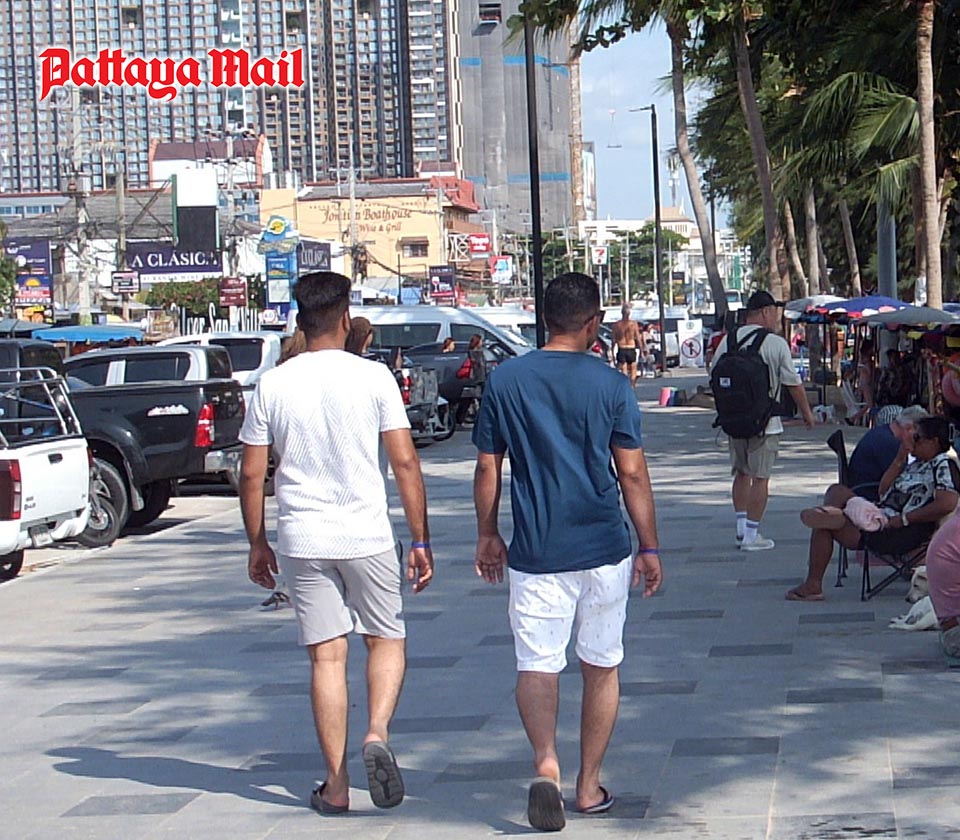
PATTAYA, Thailand – As Thailand continues to market itself as a retirement haven for foreign nationals, popular tourist cities like Pattaya, Phuket, and Chiang Mai are encountering the real-world challenges that come with building such a paradise. With a mix of outdated policies, economic contradictions, and deep-rooted social attitudes, the road to becoming a true global destination for retirees is proving more complicated than advertised.
In theory, Thailand offers plenty: tropical beaches, affordable living, cultural richness, and a historically welcoming attitude. But in practice, many hurdles remain — from visa limitations and healthcare issues to workforce shortages, language barriers, and rising everyday costs — that make “retirement heaven” feel more like a retirement headache.
Cost of Living No Longer Cheap
Thailand still markets itself as a low-cost destination, but for many retirees on fixed incomes, reality is catching up. In popular tourist areas, the cost of basic goods and services has climbed sharply.
Imported beer that once cost 80 baht now sells for 150 baht or more in beachfront bars. A simple Thai meal that used to cost 40–50 baht at a local restaurant can now run up to 100–150 baht — and that’s without drinks. For those seeking more Western-style food, prices can match or exceed those back home.
“Thailand isn’t cheap anymore, especially not in places like Phuket or Pattaya,” says one long-term resident. “The cost of groceries, dining out, rent — it all adds up fast now.”
As inflation bites, retirees are increasingly comparing Thailand not to their home countries, but to more competitive destinations like Vietnam, the Philippines, and even Eastern Europe — where better value and healthcare can sometimes be found.
Labor Shortage in Paradise
While Thailand is rolling out red carpets for long-stay tourists and retirees, its tourism sector is struggling to recruit the young workforce it desperately needs to keep things running. Hoteliers, restaurant owners, and service industry leaders have all expressed frustration at the growing difficulty of finding reliable staff, especially in major tourist cities.
“As Thailand markets itself as a retirement haven, its tourism sector struggles to find young workers it desperately needs,” noted one longtime industry observer. “But the story left out the detail that they want to hire people for 12-hour days at 300 baht. That’s barely survival money.”
Young Thais, many of whom are now college-educated and fluent in digital skills, are increasingly looking for opportunities abroad or in higher-paying sectors. “Of course, many younger Thais are highly educated and can earn much bigger salaries in other countries,” another commenter said. “Young people and work doesn’t go together — at least not for low wages in a bar or hotel.”

Language: The Lingering Divide
One of the common complaints among retirees is the lack of English fluency in Thailand, especially when compared to regional competitors like Malaysia or the Philippines. “Thailand will never be a country where English is widely spoken,” said a foreign resident. “They are quite happy just speaking Thai.”
But some turn the criticism around. “Long-term residents should put more effort into learning the language,” another pointed out. “It’s not that difficult.”
Still, for elderly retirees with no background in Asian languages, the barrier remains a deterrent — especially when dealing with healthcare providers, real estate transactions, or even just grocery shopping.
Healthcare: The Unspoken Cost
Medical care — a vital part of retirement planning — is often presented as affordable in Thailand, but many long-term residents are discovering that the devil is in the details. “Until Thailand addresses healthcare for the expat elderly, retirement expats will always be limited,” said one frustrated daughter. “For my mother, the cheapest I could find was $1,160 per month — and that came with so many exclusions it just didn’t make sense.”
As the foreign retiree population ages, the system may face further pressure. “There are way too many old white men in Thailand,” one resident remarked bluntly. “It will be a nightmare when the dementia cases rise.”
Cultural Mindsets Still Matter
Despite efforts to liberalize visa regulations and make retirement in Thailand more accessible, the cultural mindset remains a major factor. Laws restricting property ownership, lack of social integration, and a transactional view of foreign residents are issues that no marketing campaign can hide.
It’s also a question of priorities. In cities like Pattaya and Phuket, the clash between high-end visions of luxury retirement and the ground realities of underpaid workers, aging infrastructure, and seasonal tourism volatility is increasingly hard to ignore.
The Path Forward
Thailand has many of the ingredients to become a true retirement hub — warm climate, hospitality, and competitive cost of living — but it needs more than that. Reforming immigration laws, rethinking labor policies, and building a healthcare safety net for elderly foreigners will be essential.
At the same time, the country must be honest about what it can and cannot offer. Without systemic reforms and a shift in mentality, efforts to pitch Thailand as a retirement paradise may ring hollow — or worse, backfire.
Because right now, for many would-be retirees, the dream of Thailand feels just out of reach — not because of the beaches, but because of the bureaucracy, economics, and unspoken barriers that still stand in the way.










